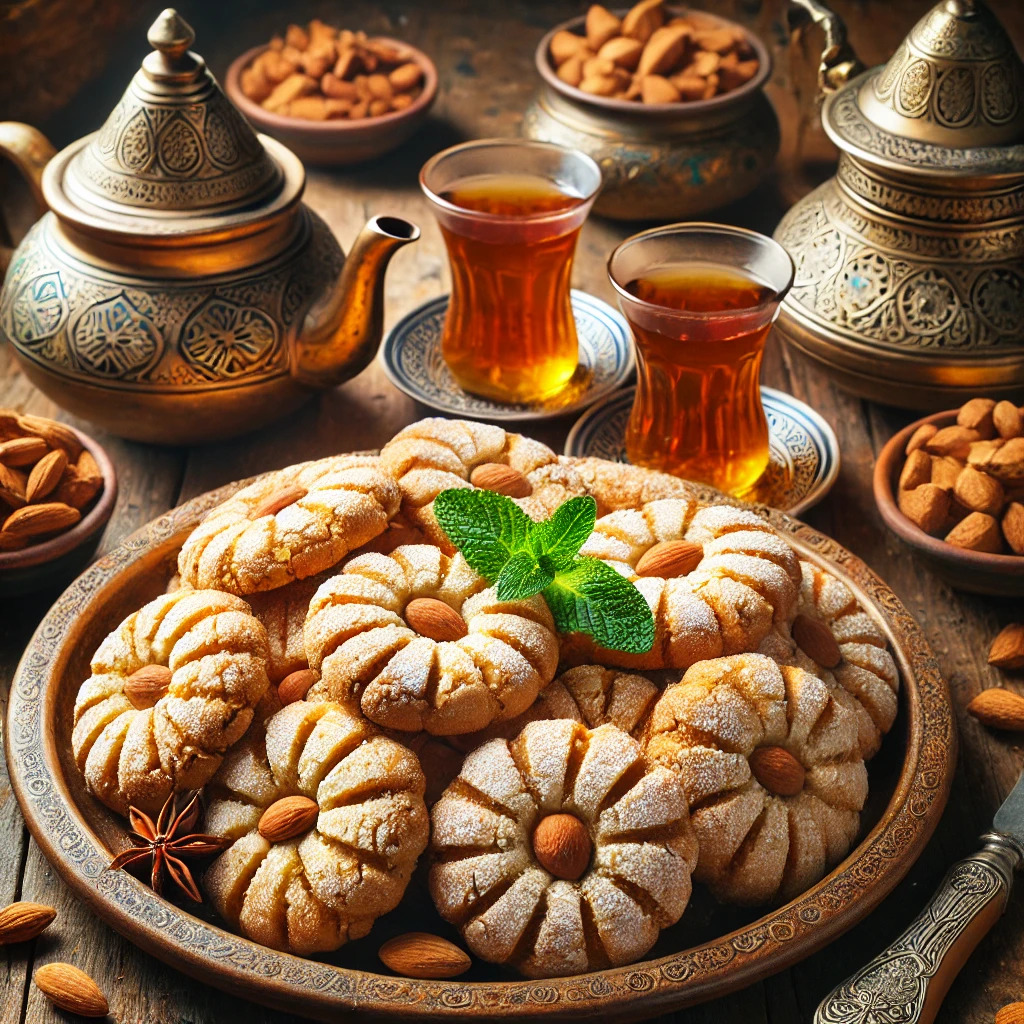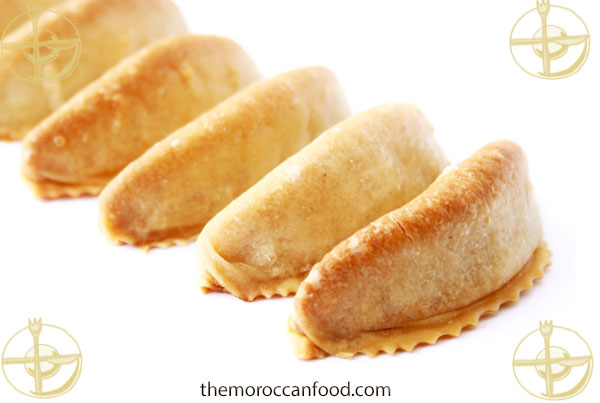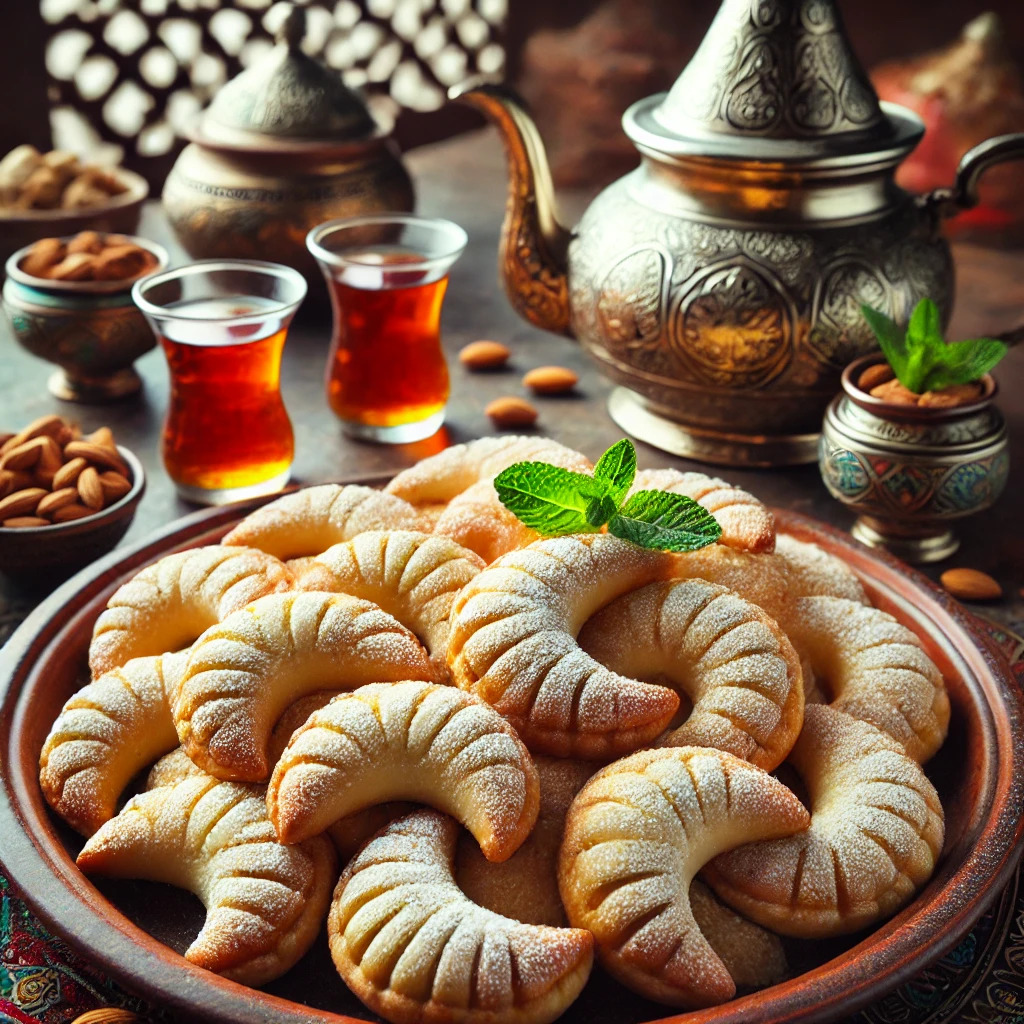I remember my childhood in Morocco filled with the sweet aromas of freshly baked almond cookies coming from my mother’s kitchen. Whether it was a special family gathering, a holiday celebration, or just a visit from a neighbor, there were always almond cookies on the table. In Morocco, these cookies are more than just a treat—they’re a symbol of hospitality, family, and love. From simple, soft Ghriba to rich, honey-soaked Briouats, each cookie tells a different story of Moroccan tradition.
Why Are Almond Cookies So Special in Morocco?
In Morocco, almonds are not just ingredients; they are part of the culture. When we offer almond cookies to guests, it’s a gesture of respect and welcome. We believe in using the best ingredients and putting in time and effort to make these sweets just right. Every family has its own version of these cookies, passed down through generations.
But what makes them stand out is not just the ingredients—it’s the care and love that go into making them. It’s like putting a piece of your heart into every bite.
Ghriba: Soft, Cracked Almond Cookies

Ghriba is probably the most well-known almond cookie in Morocco. They are soft, chewy, and have a cracked top that makes them look rustic and homemade. The cracked surface is not just a texture; it’s a sign that these cookies were made with the right balance of ingredients and patience.
How We Made Them at Home:
I remember how my mother would start by mixing ground almonds, sugar, and eggs. Then, she would add just a hint of orange blossom water to give them that unique, floral touch. The dough would be sticky, so shaping the balls required a bit of practice. Once in the oven, we’d wait eagerly for the cracks to form on top—our signal that the cookies were ready.
Kaab el Ghazal: Delicate Gazelle Horns

Kaab el Ghazal, or “gazelle horns,” are not just cookies; they are little pieces of art. Shaped like the horns of a gazelle, these almond-filled pastries have a smooth, delicate exterior. They are often made for special occasions like weddings or big family reunions because they take time to prepare.
When I was young, my grandmother would sit patiently, shaping each crescent with her hands. She always said that if you rush, they won’t be as beautiful. And she was right. The thin dough wrapping around the almond paste should be perfect—not too thick, not too thin. When you bite into one, the soft almond filling melts in your mouth, and the aroma of cinnamon and orange blossom fills your senses.
Fekkas: Crunchy Almond Biscotti
Fekkas are Morocco’s answer to biscotti. These twice-baked cookies are crunchy and perfect for dipping into tea. My mother would add anise seeds, almonds, and sometimes raisins to the dough. After baking the logs, we’d wait for them to cool a bit, then slice them into thin pieces and bake again until crispy.
These were the cookies she’d always have in a jar, ready for any guest who might stop by. And in Morocco, you never know when a guest will come—hospitality is very important to us. With Fekkas and a hot pot of mint tea, we were always prepared.
Almond Briouat: Sweet Triangles of Honey
Briouats are small triangles made with almond paste, wrapped in thin warqa dough, fried, and then dipped in honey. They are sticky, sweet, and crunchy all at the same time. During Ramadan, Briouats are a must-have on the dessert table.
I can still see my aunt sitting by the stove, carefully folding each triangle and then frying them until they turned golden brown. Once out of the oil, she would dip them straight into warm honey, making them glisten like little jewels. The mix of almonds and honey is just perfect—a true taste of Moroccan hospitality.
Why Almond Cookies are More Than Just Sweets
Every Moroccan almond cookie has a story. It’s not just about ingredients; it’s about family traditions, memories, and the love that goes into making each one. These cookies are served at happy times and shared to make guests feel welcome. They bring people together, whether it’s around a wedding table, at the end of a big meal, or during a simple afternoon tea.
Making these cookies takes time, but that’s part of the beauty. You’re not just baking—you’re creating something that has been enjoyed by generations before and will be enjoyed by generations to come. So next time you have some almonds in the kitchen, why not try making one of these Moroccan treats? You won’t just get delicious cookies; you’ll get a taste of Morocco’s rich tradition and hospitality.

